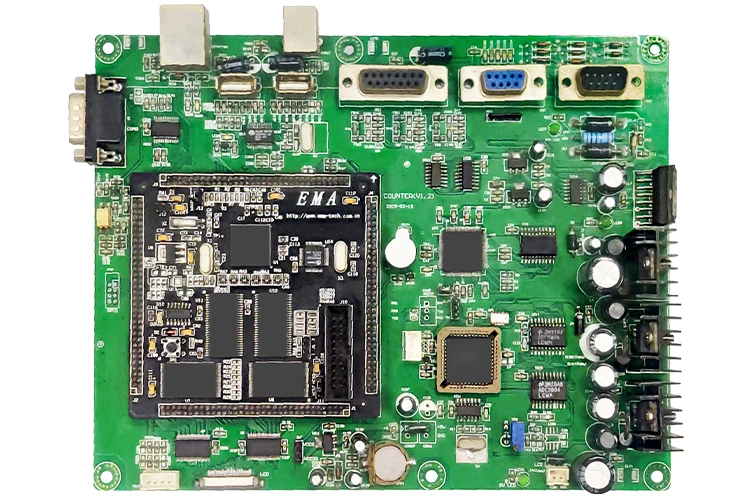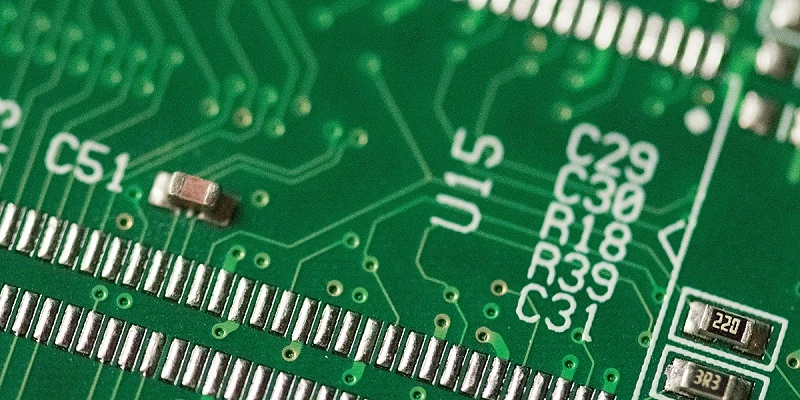Precision Low-Resistance Alloy Resistors in Sensors and Measuring Instruments
Overview
In the world of sensors and measuring instruments, accuracy is of the utmost importance. Whether it is industrial applications, medical devices, environmental monitoring or research, sensors and measurement systems must provide highly accurate, reliable and stable data. Precision low-ohmic alloy resistors play a vital role in these applications, where accurate measurement and control of electrical signals is necessary to achieve optimal performance.
As a resistor manufacturer, we provide high-precision resistors that meet the demanding requirements of these systems. These resistors are used in current sensing, voltage measurement, temperature sensing, and signal conditioning circuits to ensure that sensors and measuring instruments operate within tight tolerances and provide accurate readings.
This case study explores the use of precision low-ohmic alloy resistors in sensors and measurement instrumentation, highlighting their critical role in ensuring accurate data collection and improving measurement system performance.

The role of precision low resistance alloy resistors in sensors and measuring instruments
Sensors and measuring instruments rely on precision electronic circuits to convert physical quantities (such as temperature, pressure, humidity or flow) into measurable electrical signals. Precision low-ohmic alloy resistors are an integral part of many of these systems because they offer high accuracy, low temperature coefficient, stability and adaptability to environmental stress. These resistors ensure the reliability of data collected by sensors and the accuracy of measurements in scientific, industrial and commercial applications.
1. Current detection in electrical measuring instruments
Precision low ohmic alloy resistors are commonly used in current sensing applications to measure current. These resistors are placed in series with the circuit being measured to provide a precise voltage drop that is proportional to the current flowing through the system. This voltage drop is then measured and used to calculate the current.
- Current Measurement: In a digital multimeter (DMM), oscilloscope, or power analyzer, precision resistors are used to sense the current flowing through a circuit, providing a highly accurate current reading.
- Shunt Resistors: Precision low resistance alloy shunt resistors can be placed in high accuracy current sensors where their extremely low resistance ensures minimal effect on the current being measured while providing a stable, predictable voltage drop.
- Example: In industrial power analyzers, precision resistors are used to measure the current and voltage of a machine, allowing operators to monitor energy consumption in real time and adjust operations to improve efficiency.
- benefit:
- Accurate Current Readings: Ensures high accuracy in electrical measurements even in low or fluctuating current environments.
- Minimize the margin of error: Reduce measurement errors associated with changes in resistance over time or temperature.
2. Voltage measurement and regulation
Precision low-ohmic alloy resistors are also essential in voltage measurement and conditioning circuits used in various sensors and measuring instruments. Accurate voltage measurement is critical in a variety of applications, from laboratory research to industrial monitoring.
- Voltage divider circuits: In voltage sensing applications, precision resistors are often used in voltage divider circuits to ensure accurate scaling and measurement of high voltage signals.
- Signal Conditioning: Precision resistors are an integral part of signal conditioning circuits that convert raw sensor data into a usable format. This includes amplifying or attenuating the voltage signal to match the range of the measuring instrument.
- Example: In environmental sensors used to monitor atmospheric pressure, temperature, or humidity, precision resistors are used to accurately measure the tiny changes in voltage caused by the physical sensor response. The output is then converted into data that the monitoring system can process.
- benefit:
- Precise voltage regulation: Ensures voltage levels remain stable and within specified tolerances.
- Improved signal accuracy: Allows for precise signal conditioning to ensure the sensor output is correctly interpreted by the measurement equipment.
3. Temperature Sensing and Thermal Management
In applications where temperature measurement is required, such as temperature sensors (thermistors) or thermal management systems, precision low-ohmic alloy resistors can be used to provide high-accuracy temperature readings. These resistors typically have a low temperature coefficient, which means that their resistance value changes as temperature changes.
- Thermistors and RTDs: Precision resistors are often used in resistance temperature detectors (RTDs) or thermistors, where changes in resistance are related to changes in temperature. These systems are widely used in industrial, scientific, and medical instrumentation to monitor and control temperature-sensitive processes.
- Temperature Compensation: In some circuits, precision resistors are used to provide temperature compensation, ensuring that the readings from a sensor or measuring instrument remain stable over a wide temperature range.
- Example: In medical devices such as infusion pumps, precision resistors help ensure accurate temperature monitoring of fluids being administered to patients. This enables healthcare professionals to ensure medications are delivered at safe and effective temperatures.
- benefit:
- Precise Temperature Measurement: Ensures accuracy in critical temperature-related applications.
- Improved process control: Allows tighter control of temperature-sensitive processes in industrial automation or healthcare.
4. Signal Conditioning in Measurement Systems
In measurement systems, the signals generated by sensors are usually weak and require signal conditioning to be accurately read by the measuring instrument. Precision low-ohmic alloy resistors are used in various signal conditioning circuits to amplify, filter or convert these signals.
- Signal filtering and amplification: Precision resistors are often used in filtering circuits (such as low-pass, high-pass or band-pass filters) and amplifiers to ensure that sensor signals are optimized for accurate measurement.
- Bridge Circuit: Precision resistors are used in a Wheatstone bridge circuit, which is commonly used in strain gauges, pressure sensors, and load cells. By measuring small changes in resistance, this circuit can provide precise data about a physical system.
- Example: In a strain gage sensor used to measure strain in a mechanical part, a precision resistor is part of a Wheatstone bridge circuit that converts tiny changes in resistance into a readable electrical signal that is then measured by the sensor electronics.
- benefit:
- High-fidelity signal processing: Improves the clarity and accuracy of sensor signals, reducing noise and distortion.
- Accurate signal amplification: Ensures that weak sensor signals are amplified to levels detectable by the measurement system.

5. Power supply monitoring in measuring instruments
Many measuring instruments and sensors, especially in industrial environments, require power monitoring to ensure that the equipment is operating within its designed parameters. Precision low-ohmic alloy resistors are often used in power measurement circuits to monitor current, voltage, and power consumption to ensure that the system is operating optimally.
- Power Calculation: Power meters use precision resistors to monitor voltage and current to calculate power consumption. These resistors help provide accurate readings of real power, apparent power, and power factor.
- Energy Efficiency Monitoring: Precision resistors play a role in smart meters and energy monitoring systems, ensuring that energy consumption can be tracked and managed through accurate power measurement.
- Example: In smart grid systems, precision resistors are used in electricity meters to monitor electricity usage in homes and businesses. Data from these meters is used to optimize energy distribution and reduce waste.
- benefit:
- Accurate power measurement: Power usage and system performance can be accurately tracked.
- Improve energy efficiency: Provide the data needed for efficient energy management, reducing costs and energy waste.
Conclusion: Precision Low-ohmic Alloy Resistors in Sensors and Measuring Instruments
Precision low-ohmic alloy resistors are essential components in sensors and measuring instruments, providing the necessary accuracy, stability and reliability for a variety of applications. Whether it is current sensing, voltage measurement, temperature monitoring or signal conditioning, these resistors enable sensors and instruments to provide accurate data, which is critical for scientific research, industrial monitoring, medical applications, etc.
As a resistor manufacturer, we provide high-performance precision resistors that meet the stringent requirements of sensor and measuring instrument applications. Our resistors feature low tolerances, high thermal stability, and adaptability to environmental changes to ensure long-term performance in critical applications.
By integrating our precision resistors into sensors and measuring instruments, manufacturers can achieve higher accuracy, increased system reliability and better overall performance. These resistors are key enablers of advanced measurement technologies, driving the development of more accurate, efficient and reliable systems across industries.